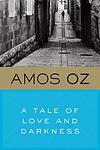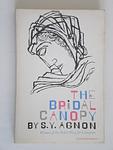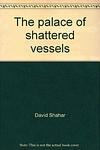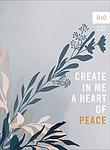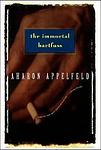The Greatest Israeli "Historical fiction" Books of All Time
Click to learn how this list is calculated.
This list represents a comprehensive and trusted collection of the greatest books. Developed through a specialized algorithm, it brings together 300 'best of' book lists to form a definitive guide to the world's most acclaimed books. For those interested in how these books are chosen, additional details can be found on the rankings page.
Genres
Historical fiction is a genre of literature that combines fictional stories with real historical events, settings, and characters. These books often take place in a specific time period and are based on research and factual information, but also include imaginative elements to create a compelling narrative. Historical fiction allows readers to experience the past in a unique and engaging way, while also providing insight into the social, cultural, and political issues of the time.
Countries
Date Range
Reading Statistics
Click the button below to see how many of these books you've read!
Download
If you're interested in downloading this list as a CSV file for use in a spreadsheet application, you can easily do so by clicking the button below. Please note that to ensure a manageable file size and faster download, the CSV will include details for only the first 500 books.
Download-
1. A Tale of Love and Darkness by Amos Oz
This book is a poignant memoir that explores the complexities of love, darkness, loss, and the endurance of the human spirit. Set against the backdrop of the end of the British Mandate for Palestine and the early years of the State of Israel, the author recounts his childhood in Jerusalem, the suicide of his mother, and his path to becoming a writer. The narrative is both a personal account and a portrait of a society in turmoil, providing a profound exploration of the individual and collective psyche.
-
2. The Bridal Canopy by Shmuel Yosef Agnon
The novel is a rich tapestry of 19th-century Jewish life in Eastern Europe, following the picaresque journey of Reb Yudel, a poor, pious Jew, as he travels through Galician villages in search of suitable husbands for his three daughters. Along the way, he encounters a vivid cast of characters and experiences a series of adventures that reveal the customs, struggles, and faith of the Jewish communities of that era. The narrative, imbued with religious and folkloric elements, offers a blend of humor, irony, and profound insight into human nature and divine providence, painting a nostalgic picture of a bygone world.
-
3. The Palace Of Shattered Vessels by David Shahar
The book is a rich tapestry of life in Jerusalem during the British Mandate period, weaving together the stories of a diverse cast of characters, from a young Jewish boy to an aging British consul. Set against the backdrop of a city steeped in history and conflict, the narrative explores themes of love, loss, and the complexities of human relationships. As the characters' lives intersect in unexpected ways, the novel delves into the cultural and political tensions of the time, painting a vivid portrait of a society on the brink of monumental change. Through its lyrical prose and intricate storytelling, the book captures the essence of Jerusalem's enduring mystique and the fragile beauty of human experience.
-
4. In The Heart Of The Seas by Shmuel Yosef Agnon
The book is a historical novella that follows a group of devout Jews from the Old Yishuv in Jerusalem as they embark on a perilous journey to the land of Israel in the late 19th century. Through a blend of myth, legend, and reality, the narrative explores themes of faith, longing, and the hardships of travel as the characters confront the trials of the sea and their own spiritual quests. The story delves into the lives and aspirations of these pilgrims, who are driven by a deep yearning to return to their ancestral homeland and the holy city of Jerusalem, reflecting on the enduring connection between a people and their sacred geography.
-
5. Arabesques by Anton Shammas
"Arabesques" is a novel that intricately blends autobiography, fiction, and historical narrative to explore the complexities of identity and heritage. Set primarily in the Arab village of Fassuta in northern Israel, the story delves into the life of the narrator and his extended family, tracing their roots and experiences across generations and borders. Through a tapestry of memories, stories, and shifting perspectives, the novel examines themes of displacement, belonging, and the cultural and political tensions in the Middle East, all while challenging the boundaries between history and memory, and truth and fiction.
-
6. Badenheim 1939 by Aharon Appelfeld
The book is a haunting allegory of the Holocaust, set in a fictional Austrian resort town on the eve of World War II. As the summer progresses, the vacationers, mostly Jewish intellectuals and artists, remain oblivious to the ominous changes occurring around them, even as their freedoms are incrementally stripped away and they are eventually herded towards an unknown, but clearly grim, fate. The narrative captures the denial and complacency of the characters in the face of impending doom, serving as a chilling reminder of the dangers of ignoring the signs of societal collapse and the atrocities it can lead to.
-
7. A Perfect Peace by Amos Oz
Set against the backdrop of a kibbutz in Israel during the 1960s, the novel delves into the life of a young man struggling with the expectations of his family and community. As he grapples with his own desires and the looming specter of war, the protagonist embarks on a journey of self-discovery that leads him away from the communal life of the kibbutz. The narrative explores themes of individuality, freedom, and the complexities of human relationships, all while painting a vivid portrait of Israeli society during a time of tension and change.
-
8. His Daughter by Yoram Kaniuk
The novel explores the complexities of identity, memory, and the human condition through the story of a man who, after losing his daughter to a tragic accident, becomes obsessed with a young woman he believes to be her reincarnation. As he delves deeper into this conviction, his life intertwines with those of Holocaust survivors and the young woman's own troubled past, revealing a tapestry of narratives that question the nature of truth, the weight of history, and the possibility of redemption amidst profound loss. The narrative weaves together personal and collective histories, creating a poignant meditation on grief and the enduring impact of trauma across generations.
-
9. The Immortal Bartfuss by Aharon Appelfeld
The book is a poignant exploration of the life of a Holocaust survivor grappling with the weight of his past and the struggle to find meaning in the aftermath of unimaginable trauma. The protagonist, a man who has outlived the horrors of a Nazi concentration camp, finds himself in a small Israeli town, where he is haunted by memories and the loss of his family. His survival comes with the burden of guilt and the challenge of reconnecting with a world that has been irrevocably changed. Through his journey, the narrative delves into themes of memory, identity, and the complex process of healing from psychological scars, offering a stark examination of the enduring impact of the Holocaust on individual lives.
Reading Statistics
Click the button below to see how many of these books you've read!
Download
If you're interested in downloading this list as a CSV file for use in a spreadsheet application, you can easily do so by clicking the button below. Please note that to ensure a manageable file size and faster download, the CSV will include details for only the first 500 books.
Download